 (İNFOSOLBİRLİK@yahoogroups.fr)
(İNFOSOLBİRLİK@yahoogroups.fr)Şunu biliniz ki, "COLLAPSE" (ÇÖKÜŞ) değil, tam aksine, "REVİVAL" yani bir "DİRİLİŞ" var Mustafa Kemal'in Türkiyesinde... "Muasır Medeniyet"i sollayacak bir "SİLKİNİŞ" yani, Mustafa Kemal'in Türkiyesi "Bilinç Çağı"nı İDRAK etmiştir, 12. 01. 2009 itibariyle...
"Ozon tabakası, sera etkisi, buzullar, yağmur ormanları ve iklim değişikliği gibi sorunlardan 'Bilgi Çağı' sorumludur" dersem, "hayır" demeyeceğinizi umuyorum...
Bu açıklamalar, yıllardır devam eden, "okul dışı eğitim" çalışmalarında edinilen "tecrübi bilgi" ile inşa edilmiş Bilinç Üniversitesi tarafından yapılmaktadır...
Bilinç Üniversitesi; "kitabi-nakli bilgi" ile inşa edilmiş olan Bilgi Üniversiteleri'nin bu açıklamalara kulak vereceklerini ummak istiyor...
" Benim naçiz vücudum bir gün toprak olacaktır ama Türkiye Cumhuriyeti ilelebet payidar olacaktır" diyen Atatürk'ün Türkiyesi "Bilgi Çağı"nda kaybettiği yüzyılları "Bilinç Çağı"nda yapacağı SIÇRAMA ile kapattıktan başka, kaybetiği kadar da fark atacaktır, Muasır Medeniyet'e sayın ykn hotmail !
"Bilinç Çağı" dünyayı, hepimizi, kucaklayacak" Yurtta Barış Dünyada Barış"ı, da gerçekleştirecek bir mekanizmadır, efendim...
GaliP BARAN
----- Original Message ----- From: ykn_hotmal
Sent: Saturday, January 10, 2009 1:16 PM
Subject: HABER AJANSI THE TRIAL OF MUSTAFA KEMAL ATATÜRK
THE COLLAPSE OF TURKEY (I)

Sivas, Turkey, 1919
THE TRIAL OF MUSTAFA KEMAL ATATÜRKPart ıDEEP BACKGROUND“No, no!” said the Queen. “Sentence first—verdict afterwards.”Alice’s Adventures in WonderlandLewis Carroll
In the name of democracy, social justice, and legal egalitarianism, a purge of hundreds of secular opponents of Turkey’s religious-rooted, ruling party, the AK party, is taking place in plain sight. It’s a witch hunt called “Ergenekon,” and it's made in the USA. This travesty is worthy of comparison to other America-backed human and political rights fiascos like the juntas in Brazil (1964), Uruguay (1973), and Argentina (1976), not to mention the glorious Pinochet years in Chile, begun so ironically on September 11, 1973.(1) In terms of purges and cultural cleansings, the Spanish Inquisition also comes to mind—for once, America has “clean hands.” An inquisition Dostoevsky-style is a better comparison. As you remember in The Brothers Karamazov, Jesus returns to earth and is arrested by the religious Grand Inquisitor for misjudging human nature and giving the people too much freedom.
Tomorrow I shall find you guilty and burn you at the stake as the most wicked of heretics, and those same people who today kissed your feet will tomorrow at one wave of my hand rush to rake up the embers on your bonfire. (2)
Think Atatürk in the dock, Atatürk, the founder of modern Turkey, the accused, Mustafa Kemal Atatürk.
Beyond the looking glass in the Republic of Turkey, almost a hundred suspects have been swept up in raids, predawn and otherwise, to be held without benefit of provisions of habeas corpus. Some were held without charges for upwards of 18 months. Some died in prison, uncharged. A few were released. Ripe with the odor of a fishing expedition—documents confiscated, computers impounded and subject to being loaded with false evidence—the so-called investigation marches on, a legally blind beast of terror. So-called evidence is leaked to the public by the religious, pro-government press. Human rights? The rule of law? Not in Wonderland Turkey. Not through Turkey’s looking-glass.But at last, in the summer of 2008, charges finally were proferred. The indictment runs a back- and mind-bending 2500 pages, with an additional 150,000 pages in 450 dossiers. As the saying goes, everything is in there but the kitchen sink. It’s a hodge-podge of documents—transcriptions of wire-tapped telephone conversation, secret witness depositions, and dubious linkages to even more dubious so-called evidence. But now, at last, a trial of sorts is in process, IN THE JAIL! The prejudical nature of this venue alone would seem enough to have the whole mess tossed in the Bosphorous, even by a semicomatose judge. But not in Wonderland Turkey. In Wonderland Turkey, as in Macbeth, fair is foul and foul is fair. And the ruling party controls a large segment of the judiciary system, a system in tatters regarding democratic objectivity and legal propriety.Which brings us to Silivri Prison (Silivri Cesaevi), a vast penology factory, a gulag worthy of all the words Solzhenitsyn ever wrote on the subject. From the air it’s reminiscent of the aerial reconnaissance photographs of Auschwitz.(3) The general area called Silivri, about 40 miles west of Istanbul, is prime agricultural and pasture land and was once famous for its yogurt. Unfortunately, like many other things Turkish, mismanagement ruined the brand. Now, the nation itself is ripe for ruination.The prison, brand new and capacious—the largest in Europe—has room to incarcerate 11,000 prisoners. The freshman class of Ergenekon suspects numbering a hundred or so is small potatoes indeed. To prepare such a huge facility the ruling party must have big plans, with room for 10,900 more “suspects.” The scheme functions very well for the ruling party. To distract attention from whatever ruling party transgression happens to be raging—lawsuits, corruption scandals, economic crises—a roundup is ordered of the usual suspects, all followers of the principles of Atatürk. Writers, journalists, university presidents, labor union leaders, lawyers, retired army officers are all fair game. Some are in their eighties and represent a deep heritage seeded by the golden years of Mustafa Kemal’s “enlightenment” revolution. Those now jailed are the intellectual essence of the legacy of Atatürk, the “Turkish youth of future generations” to whom Kemal literally, in speech, and writing, entrusted the safety and protection of the secular Republic of Turkey, a republic whose very existence is in dire jeopardy .The ruling party uses the Ergenekon scam for two reasons. First, “creative subversive talent,” both inside and outside Turkey, has been marshalled to bring to fruition the crackpot project of the Bush administration to make Turkey a “moderate Islamic state.” And the ruling party is an obedient creature of America. Second, the ruling party has particularly messy linen. When it gets hung out to dry, a smoke screen is needed. Enter Ergenekon, the monster of Turkey.Consider, for example,the trial in early 2008 where the AKP was found guilty by the Constitution Court of being the focus of anti-secular activity in Turkey. Round-up! Consider the Deniz Feneri scam, the draining of millions of euros from a so-called charitable foundation. Indeed 41 million euros of contributions from pious Turks in Germany were stolen, 17 million of which was hauled to Turkey. Some of the loot was reportedly given to a media company friendly to the ruling party—the prime minister’s son-in-law being one of the operators. According to the German prosecutor, the money importation reached high levels of the current government—no names given, of course. The prime minister, perhaps protesting a bit too much, handled the news by ordering a boycott on the newspapers in Turkey that dared print the story. Zahid Akman, a party insider and manager of the Turkish government’s television and radio system (RTÜK), was fingered by the court as the bagman. The Turkish legal authorities have yet to act, waiting patiently for the German court’s dossier to arrive. Akman remains diligently at his post, protecting public morality by resolutely blurring offending scenes of cigarette smoking and alcohol consumption.Beyond the looking glass in the Republic of Turkey there is a Constitution prevailing that the religious-rooted ruling party cannot abide. The first line is enough to make the pious party membership seethe. It states that the essence of the nation is,
in line with the concept of nationalism and the reforms and principles introduced by the founder of the Republic of Turkey, Atatürk, the immortalleader and the unrivalled hero, this Constitution, […] affirms the existence of the Turkish nation and motherland and the indivisible unity of the Turkish state.(4)
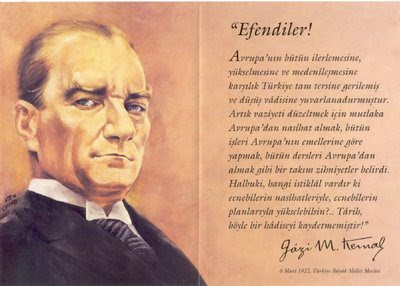.jpg)
There’s that name—Atatürk—military hero, anti-imperialist, political and social reformer, an intellectual (his personal library was enormous) (5), and scrupulously honest. No wonder he’s despised by Turkey’s ruling party, whose primary reading fare is the holy book and whose primary social initiative is the veiling and diminishment of women. Contrast this with Atatürk who gave Turkish women full voting rights in 1934, well before France (’44), Italy (’45), Greece (’52), Belgium (’60), and Switzerland (’71). The government’s Atatürk-phobia runs deep, and is no longer under cover.Sadly, little is known about Atatürk in the west. The New York Times propagandist, Sabrina Tavernise, dismisses him as a “former army general” (6). Earlier in the year she had echoed the ruling party’s anti-Atatürk line and criticized him for “imposing a radical secular reform on a poor devout country.” (7) Short shrift for the man who founded the most profound, sweeping western revolution in the 20th century. Tavernise trotted out this same disparaging theme in another pro-government article six months later. Therein she quoted Dengir Firat, then vice chairman of the AK party, who said that Atatürk had “traumatized” the people. “Overnight they were told to change their dress, their language. Their religious ways were dismantled.”(8) Firat’s allegations are nonsense, as Tavernise could have readily determined with a little reading of history. Firat, a slick man with a built-in sneer, sports a diamond pinky ring along with a gold wristwatch the size of a pomegranate. He, like his party, is on a mission to destroy the concept of Atatürk. Unfortunately for him, he was caught up in the aforementioned Deniz Feneri embezzlement, coupled with allegations of drug racketeering. It proved too much, even for Prime Minister Erdoğan who sacked him from his job as deputy head of the party. But not from the party. Firat remains happily sitting in parliament, enjoying immunity from prosecution, as do all parliamentary deputies in Turkey.Other politicians, in other climes, might have been pressured by their constituency to resign. Or have resigned as a matter of conscience, or from a sense of personal honor. Not in Turkey. Not any more. Not since the death of Mustafa Kemal Atatürk, the accused now in the dock.
End of Part I(To be continued)Next episode: The Arraignment
Cem Ryan, Ph.D.Istanbul, Turkey8 January 2009
http://forreasonsunknown-cem.blogspot.com/
(1) For details on these and numerous other America-induced political and social catastrophes read Naomi Klein’s The Shock Doctrine, Penguin Books, New York, 2007.
(2) Dostoyevsky, Fyodor. The Brothers Karamazov, Penguin Classics, New York, 1993, page 287.
(3) http://www.nizkor.org/hweb/camps/auschwitz/aerials.html
(4) Excerpt from Constitution in Turkish: “Türk Vatanı ve Milletinin ebedî varlığını ve Yüce Türk Devletinin bölünmez bütünlüğünü belirleyen bu Anayasa, Türkiye Cumhuriyetinin kurucusu, ölümsüz önder ve eşsiz kahraman Atatürk’ün belirlediği milliyetçilik anlayışı ve O’nun inkılâp ve ilkeleri doğrultusunda”The Constitution of the Republic of Turkey (English): http://www.hri.org/docs/turkey/The Constitution of the Republic of Turkey (Turkish): http://www.byegm.gov.tr/mevzuat/anayasa/anayasa-tr.htm
(5) “The library at Atatürk’s Mausoleum contained 3114 different publications which he had read. Atatük had underlined passages and scribbled notes on a number of pages he had found particularly interesting. Of those publications I studied 278 of the books dealt with the history of various civilizations.” Tufekçi, Gürbüz D. Universality of Atatürk’s Philosophy, Turkish Ministry of Foreign Affairs, 1981, page 9.
(6) New York Times, 13 Oct 2008 http://www.nytimes.com/2008/10/14/world/europe/14turkey.html?scp=4&sq=ataturk,
(7) New York Times, 16 Jan 2008http://query.nytimes.com/gst/fullpage.html?res=9C07EED9163BF935A25752C0A96E9C8B63&sec=&spon=&&scp=9&sq=ataturk,
(8) New York Times, 22 Jun 2008http://www.nytimes.com/2008/06/22/world/europe/22turkey.html?scp=2&sq=bitter













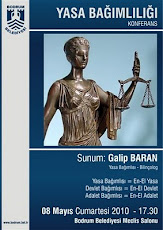


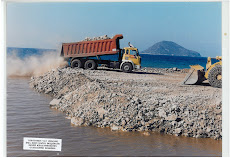
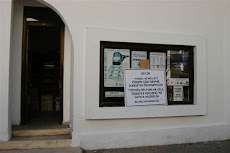
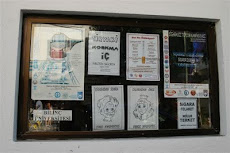

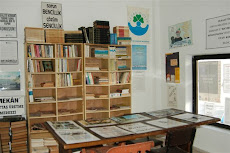


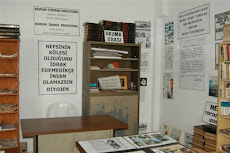
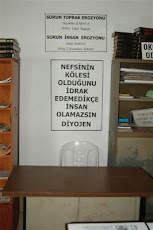
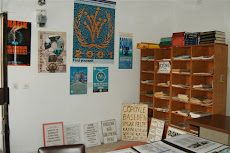

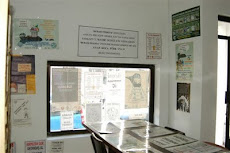
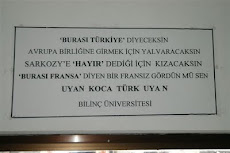

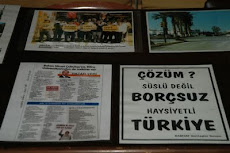


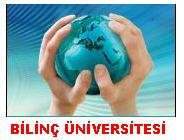
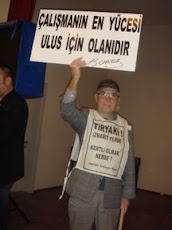

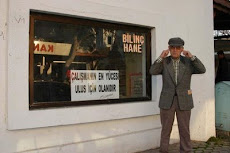


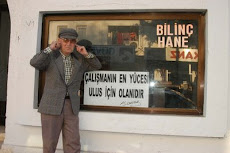
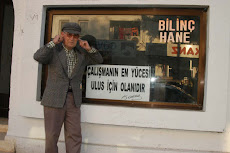
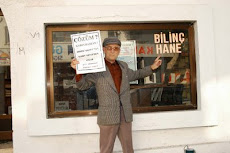



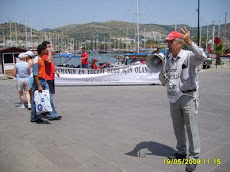


Hiç yorum yok:
Yorum Gönder